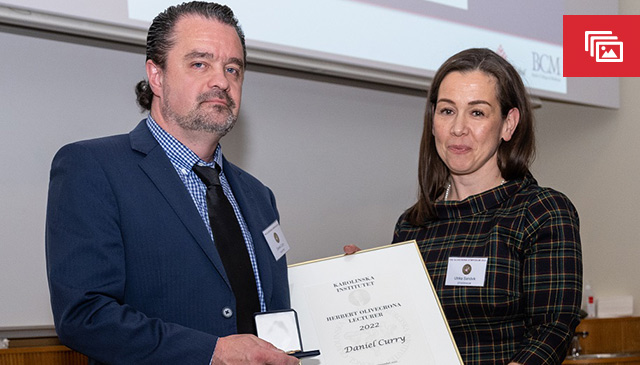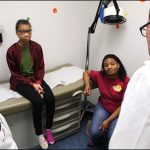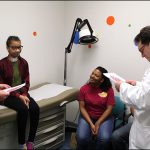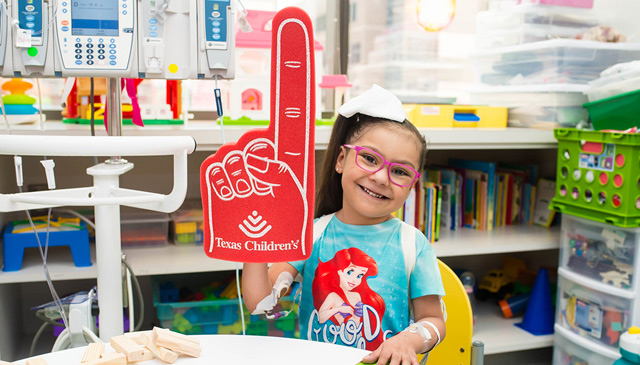October 8, 2018
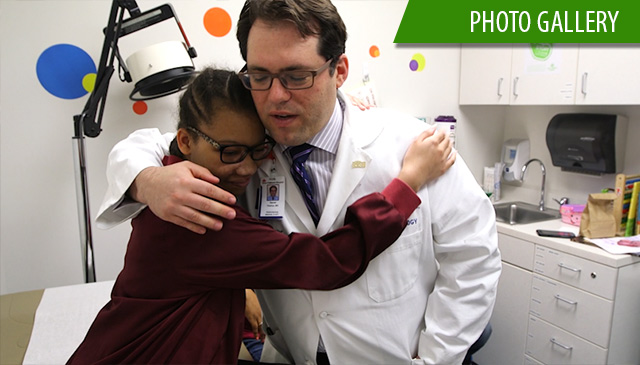
A world-class, multidisciplinary team at Texas Children’s is making huge strides in the care of children with extremely complex tumors.
The Head and Neck Tumor Program, begun in February 2016 as collaboration with partner institutions within the Texas Medical Center, has performed more than 20 major ablation free-flap multidisciplinary cases – a staggering number, considering the rarity and complexity of the tumors, which can be malignant or benign and can affect any combination of the sinuses, skull, jaw, mouth, neck and face. The ability to handle that volume of complex cases, combined with tremendous outcomes in the first two years, puts Texas Children’s Head and Neck Tumor Program among the best such programs in the country.
“Our institutional expertise is in taking care of these kinds of critically ill children, and Texas Children’s does it better than anyone,” said Dr. Daniel Chelius, attending surgeon in the Division of Otolaryngology and co-head of the program. “We’ve built a collaborative, coordinated program on that foundation of expertise in many different areas to provide the best care possible for the sickest children, while also reviewing and analyzing the care from every angle to see what went well and what processes could improve.”
Treatment of children with head and neck tumors around the country has historically been ad hoc, due to the varying functional issues or oncologic needs present from patient to patient and the extreme rarity of the tumors in any given city. Compound these complex physiological issues with the fact that most children these tumors have been treated in adult hospitals and the result has been a largely disjointed approach to care.
Texas Children’s Head and Neck Tumor Program, spearheaded by Chelius and Dr. Edward Buchanan, chief of Plastic Surgery, has developed a coordinated process around a multidisciplinary team approach that builds crucial experience in the treatment of these rare tumors and provides consistent, personalized care for patients – like 15-year-old Kami Wooten.
Last year, Kami began to notice swelling in her gums. Just months later, a benign tumor had covered half her face and threatened her vision. The team at Texas Children’s developed a specialized care plan that included removing the mass and reconstructing a portion of her face including the roof of her mouth and her orbit (eye socket). Additional procedures will be necessary in the future, but Kami and her family are grateful for the care Texas Children’s gave them.
Learn the rest of Kami’s story here.
The collaborative program comprises more than 10 Texas Children’s specialties and subspecialties, including Otolaryngology, Plastic Surgery, Neurosurgery, Oncology, Interventional Radiology and Anesthesiology, as well as a dedicated operating room team – led by Audra Rushing and Kelly Exezidis – that has been instrumental in building robust perioperative protocols. The additions of pediatric head and neck surgeon Dr. Amy Dimachkieh and microvascular reconstructive surgeons Dr. W. Chris Pederson and Dr. Marco Maricevich have increased the program’s abilities and improved the quality of its recommendations.
“It takes a lot of thought and planning to remove these complex tumors completely, while sparing as many nerves and other important structures as possible, and then to reconstruct those structures to provide both a good functional and cosmetic outcome,” Chelius said. “We tell our patients that the process might not be fast because they need the right surgery the first time. That requires recommendations from a team of experts, not just one surgeon. And that means carefully coordinating to make sure everything is as perfect as possible.”
The care required to treat these tumors, particularly if the patient is also undergoing cancer treatment, can also take a massive emotional and psychological toll. The Head and Neck Tumor Program provides additional care support through the department of Clinical Psychology and Child Life Services.
The team also uses technology to enhance the patient experience, from diagnosis to recovery. The program uses 3-D modeling to reconstruct children’s anatomy to help predict the extent of resection and to develop the surgical plan. The team also developed a data-driven protocol for pediatric tracheostomy removal, in close collaboration with Speech and Language Pathology, which uses a pressure monitoring device to signal when the trach is loose enough in the airway to be removed without adverse effects.
As a result of this innovative approach to care, 100 percent of patients treated have left the hospital breathing, eating and swallowing on their own. And the average stay in the hospital: just 14 days.
The program has been steadily building a referral base, drawing patients from across the region and from as far away as Mexico and the Middle East. In the near term, the team will continue to solidify the program, publish data and findings, and work to increase Texas Children’s reputation as the leading referral center for these complex cases. Long-term goals include building a basic science research infrastructure around understanding the underlying causes of these tumors, as well as collaborating with Texas Children’s Cancer Center and other research partners.
“We know that families are coming to us shocked and scared,” Chelius said. “We want them to know that we’re building our experience, we’ve walked families through this before, and we’re going to get them through this with the absolute best care available.”
Learn more about Texas Children’s Head and Neck Tumor Program.
